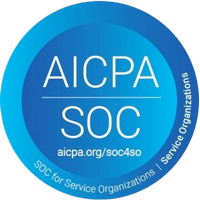Luke had Yoda, Robin had Batman. With a good mentor, the world becomes a little less daunting. But despite its benefits, mentorship in healthcare isn’t easy to come by. With busy schedules and a fast-paced environment, many workers don’t have the time to seek out and nurture mentor/mentee relationships. That’s where you come in.
Here’s why you should start a mentorship program in healthcare—and how to get started.
What Is a Mentorship Program in Healthcare?
At some point in their careers, many people find mentors—more experienced individuals who can help guide their professional development. Mentorship in healthcare can help both mentors and mentees learn about themselves and excel in their role.
A mentorship program is a formalization of this process. It refers to any program where another party (such as an employer) matches mentors and mentees. In a professional mentorship program, meetings between mentors and mentees can take place during the work day.
Benefits of a Mentorship Program
Supports Career Development
According to the Society for Human Resources Management, one of the top five stressors for workers is a lack of growth opportunities.
Some healthcare employees struggle to visualize a career in their field. This is especially true for high-turnover and high-demand workers such as CNAs, who might see their employment as inherently unstable. It’s also likely these workers will need to return to school to advance their careers, which can be costly.
Meeting with a mentor who started out in a similar role can help new workers imagine what their future might look like.
Builds Strong Relationships
A whopping 70% of employees say that the most important part of a healthy working life is workplace friendships. Over half (58%) say that they prioritize getting along with coworkers over a higher paying position.
A supportive and friendly environment can go a long way when it comes to retention. Mentorship can help your employees see one another as individuals and nurture a sense of unity and teamwork.
Enhances Employee Engagement
Gallup reports that over half (51%) of employees are disengaged at work. When employees aren’t engaged, they may put in less effort, be uninterested in supporting colleagues, or even leave for other opportunities.
It’s clear that companies need to boost employee engagement. Fostering mentorship in healthcare leads to employees feeling more connected to their place of work. A mentor can also help provide employees with positive feedback and appreciation, which, in a high-stress environment, can go a long way.
Learn more about employee appreciation in healthcare
Improves Onboarding
Onboarding can be disorienting for new hires—there’s a lot of new information, fast. In a healthcare setting, it’s important to ensure all new employees have access to accurate information about their jobs.
With a mentor to refer to, the onboarding process can become a lot less intimidating. New hires will have a point person that they can direct questions to and learn from.
Reduces Mistakes
Your employees are only human. Anyone starting at a new job is at risk of making mistakes. Starting a new position can be stressful, and that stress can result in dangerous errors.
According to the American Journal of Critical Care, nurses who reported low mental and physical health were more likely to make mistakes. A mentor can guide a mentee through common beginner mistakes, and help them feel supported as they navigate through the stressors of a new role.
Having a robust mentorship program can even open up new candidate pools for healthcare employers. Healthcare organizations may be interested in hiring new grads who may not have on-the-job experience, and pairing them with a mentor for their first few months.
Reduces Employee Turnover
According to CNBC, 94% of employees say that they’re less likely to leave a company if they felt like their workplace was interested in helping them learn. A mentorship program can be a great way to show employees that you’re invested in their growth and learning.
How to Set up a Mentorship Program
We’ve established there are many benefits to having a mentorship program in healthcare. But how do you start one at your own facilities?
1. Plan
Set Parameters for Your Program
Start by determining the scope and goal of your program. Here are some questions to answer before you proceed.
- Is this program voluntary or mandatory for new hires?
- How long do you want mentors to officially supervise mentees?
- Will each mentor be paired with one mentee, or several?
- Is your mentorship program only open to new hires, or can long-standing employees find mentors too?
- What, if any, payment and perks will a mentor receive?
- What will you do if someone drops out of the program or requests a different mentor/mentee?
- What are the goals of the program?
- Are there certain skills or trainings that are expected to be taught by the mentor?
Prepare Your Program Materials
Once you get a sense of the size and scale of the mentorship program, you’re ready to create training materials for mentors. This should include a mentorship handbook and any other relevant guides or materials. Work with your team—or hire an outside consultant—to create a comprehensive packet of materials for mentorship in healthcare.
Advertise Your Program
Finally, you need to invest in incentives and internal marketing, so mentors have a reason to volunteer. Incentives can include anything from a gift card to branded merchandise to tickets for a high value raffle.
2. Train Mentors
Now that you’ve laid the groundwork for your program, it’s time to train your mentors.
Mentorship is a skill, and even the most enthusiastic participants will have things they need to learn. Mentors should receive training in how to communicate, run meetings, and what kind of advice they’re qualified to give. They should be well versed in resources to provide their mentees if simple advice isn’t cutting it. You may also choose to set up a brief application process to be a mentor, though it’s important to make sure that the application isn’t so involved as to deter potential mentors who may not have the time to complete it.
Like students with teachers, mentees look to mentors for guidance. It’s important for both sides to be cognizant of professional boundaries. Set aside time to train mentors, providing incentives or refreshments if it’s outside of the work day.
3. Implement
Your mentors are trained and your materials are prepared. It’s time to put your mentorship plan in action. Match your mentors with your mentees, schedule meetings, provide resources, and let the program unfold.
4. Manage
Your mentorship program is off the ground, and now your job is to manage any issues that come up. Check in regularly with your staff to make sure that everyone is happy with their mentorship experience.
After a successful round of mentorship, complete a more formal survey to see if you need to update your training materials.
Dos & Don’ts of Healthcare Mentorship
Do: Choose Mentors Thoughtfully
Mentors shouldn’t be chosen randomly. They should be enthusiastic, engaged, and prepared to learn.If mentors are reluctant about their role, mentees will probably notice.. You want the mentorship program to feel fulfilling, not like homework.
Even some enthusiastic volunteers may not be suited to a mentorship role. Decide how you’ll choose mentors, whether that’s by asking for recommendations from direct supervisors or through an open application process. Just make sure the process isn’t so intensive that it deters potential mentors from applying.
Do: Allocate Time for Mentoring
Time flies in healthcare, and it can be easy to forget about the mentorship program in the bustle of a clinical setting. It’s easy to feel like mentoring is not a priority compared to other duties.
Set aside dedicated time for mentoring, even reimbursing lunches or coffees. This is time for a mentor and mentee to learn more about each other and for the mentor to provide guidance.
Do Provide Resources to Support Both Mentors and Mentees
Mentoring can be hard work. Before you kick off your mentorship program, be prepared to support your mentors.
Mentors have their own jobs. They are not meant to be on call the whole work day, nor are they a replacement for HR. Make sure that mentors and mentees both have resources and support throughout and beyond the mentorship program.
Don’t: Micromanage
Let mentor and mentee relationships grow organically—you don’t want your employees to feel like you’re hovering. Set up events for mentors and mentees to bond, and check in occasionally, but otherwise trust your employees to make those connections themselves. Too much micromanaging can make the process feel awkward and inorganic.
Don’t: Set Overly Ambitious Goals
Make sure that the mentorship program doesn’t take over the other duties of your employees. Will your mentors and mentees really be able to meet every week given their other duties? Be cognizant of your employees’ workloads when you design the program. When in doubt, ask participants for feedback.
Better Onboarding With Apploi
The right technology can help you manage employees through hiring and beyond. With accessible digital records, credential verification, and an easy-to-use platform, Apploi gives your onboarding an additional boost.
Interested in learning more about how you can recruit, hire, and onboard healthcare staff quickly? Contact us today for a free demo of our end-to-end talent management solution.




